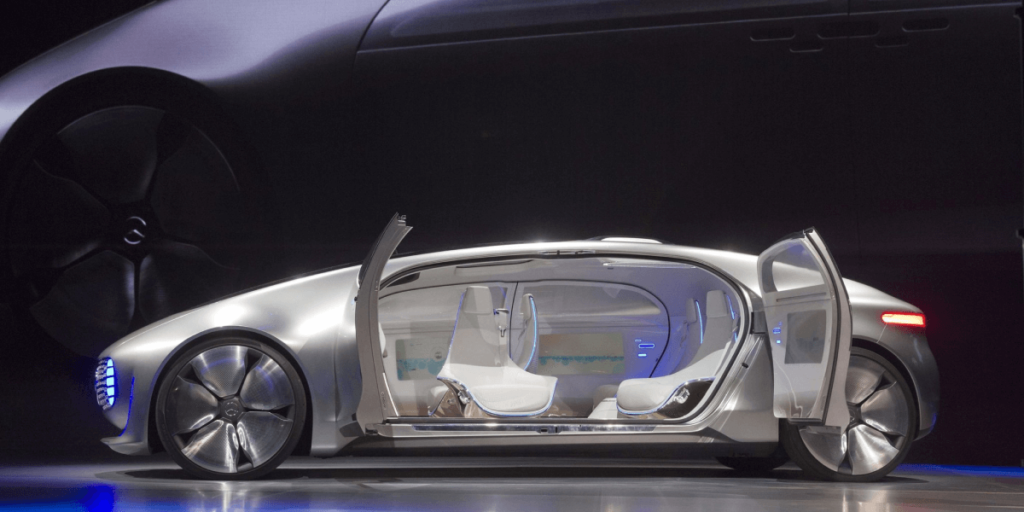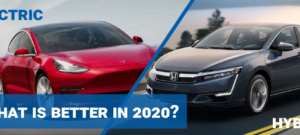Should We Really Expect Self-Driven Cars in 2020?

If you are interested in automotive industry trends and follow the latest news, you might have heard about the idea of developing vehicles that can drive on their own. Also, you might have heard that such renowned companies as Tesla, Honda, General Motors, and others have already tried to implement this idea into real life. However, their experiments with self-driven cars didn’t bring the expected result and confirmed the imperfection of autonomous vehicles.
According to the statistics provided by GRGB Law, about 90% of road accidents are caused by driving errors. So, the main goal of implementing autonomous cars was reducing those errors and saving lives. However, the implementation of the idea didn’t meet the expectations when in 2018 an Uber driverless Volvo XC90 failed to correctly identify a pedestrian and caused a fatal crash.
Still, automotive companies and driving safety experts believe that automotive vehicles can be of great help. So, what’s up for self-driven cars in 2020? Let’s keep on reading and find that out.
Does the development of self-driven cars go on?
It’s no secret that automotive and IT leading companies gather together to improve the experience of self-driven cars so that they can really save lives and reduce cases of collision. Among the most renowned ones are Tesla, Apple, Google, Audi, BMW, Bosch, Hyundai, Microsoft, and others.
- As the rumors go, Apple has been developing the so-called “Apple Car” since 2016. Originally, the project was named “Titan” and the company promised to deliver it by 2020. However, the vehicle’s self-driving systems are currently being tested, so the release is expected by 2023-2025.
- Waymo, formerly known as Google Car Project, is actually more than 10 years old now. Now, Waymo operates a Waymo One fleet of Society of Automotive Engineers (SAE) Autonomy Level 4 robo-taxis in Phoenix, Arizona and is going to test driverless SAE Autonomy Level 5.
- Argo AI is a Ford Motor Company’s startup that is currently testing 100 self-driven vehicles in about 6 cities in different US states. The startup received $1 billion of investments from Ford and also $2.6 billion from Volkswagen.
- In 2019, Elon Musk promised there would be one million autonomous Teslas (SAE Level 5) on the global roads by the end of 2020. However, the current world crisis seems to postpone this event.
- Yandex internet company started testing self-driving cars back in 2017, with the prototype launched in May 2017. By the end of 2019, Yandex announced that the prototype successfully passed 1 million miles in autonomous mode in Russia, Israel, and the USA. In 2020, it’s mileage was doubled.
These are only a few examples of renowned companies working on the development of self-driving vehicles and their further integration into the lives of modern people. Many more automotive and IT giants have been working on this idea during the last decade.
Can the benefits of self-driven cars outweigh their drawbacks?
As soon as manufacturers of autonomous vehicles find a way to improve their creation and conduct all the needed testing, the latter is likely to become super-helpers on the road. For example, the first advantage that comes to mind is the possibility of driving for disabled people. Unable to get a driving license now, they would be able to “drive” vehicles by using their voice and safely get to the needed destination later.
Another good thing about self-driven cars is their fuel-efficiency, as they are going to reduce the number of traffic jams due to their advanced navigation system. Self-driving cars will be able to accelerate and brake more efficiently resulting in a higher fuel economy from reducing wasted energy.
According to world driving safety experts, autonomous cars can significantly reduce the number of collisions caused by the human delayed reaction, aggressive or distracted driving, and tailgating. The only concern is a matter of time when all those vehicles are secured enough for getting on the public road.
The popularity of self-driven cars can result in the launch of robotic taxi services that can take people from point A to point B and reduce their stress level while traveling to work and right back. So, many people are likely to refuse from owning vehicles. Consequently, this can decrease the amount of automotive production and make a serious economic and environmental effects.
What are the main obstacles?
It’s not a secret that self-driving vehicles have already faced a huge human factor challenge. At the moment, they experience serious difficulties in detecting pedestrians, cyclists, and animals and can’t properly determine their intentions. Also, there is no eye or gesture contact with a driverless car, and it’s often hard to make the right decisions that are crucial for human safety.
For instance, Tesla Autopilot Semi-automated cars have shown that people aren’t ready to take responsibility while driving and prefer to fully rely on a vehicle’s automated driving system and sensors. As they totally ignore the road, other drivers, cyclists, and pedestrians are in potential danger of getting into a collision.
Another obstacle is the potential of loss of driving-related jobs caused by the widespread adoption of autonomous vehicles. Public transport workers, professional drivers, and car repair shops can express their resistance to the automated car industry. Also, the automobile insurance industry is in danger, as new technologies can make some of its aspects outdated.
Final words
Trends in the automotive industry are dictated by people’s necessity of low-stress life in comfort. So, many are likely to adopt self-driving cars and use this technology in their day to day life. On the other hand, fear of losing a job will push others to protest against its wide-spreading.
Anyway, it’s early to make conclusions about the future of autonomous vehicles until manufacturers make them fully secure for both passengers and pedestrians. Until then, we can increase our awareness on the road by being fully responsible for our decisions and stop delegating the responsibility to gadgets.















